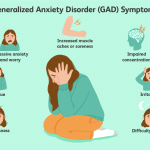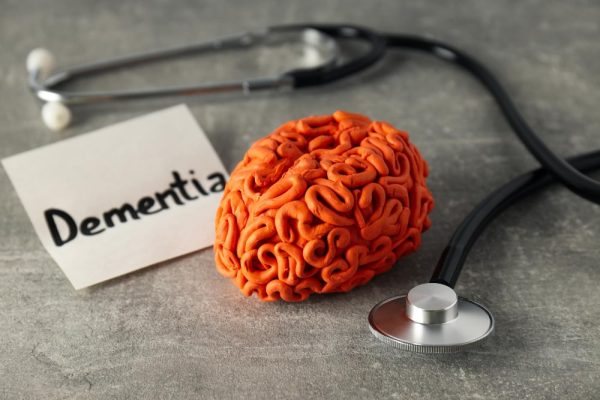Although the name may have the word eating in it, eating disorders are related to much more than food. Like any other psychological disorder, they need to be taken seriously, and the help of skilled psychotherapists is required for their treatment.
In fact, according to recent statistics, more than 30 million people in the US suffer from different forms of eating disorders.
Whether an eating disorder manifests in the form of obesity, or anorexia, it can have very detrimental effects on your health and social life. However, most people don’t know about these therapy methods. Therefore, in today’s post, I am going to tell you about six forms of therapy that can be very effective in the treatment of eating disorders.
Keep reading to learn more.
Cognitive Behavioral Therapy:
Cognitive Behavioral Therapy, or as it is shortly known, CBT is a kind of psychotherapy, which focuses on the formation of negative patterns in the mind of the patients, and it also focuses on the beliefs and practices that contribute to these negative thought patterns.
Cognitive Behavioral therapy teaches the patient’s specific skills that allow them to identify negative thoughts and problematic beliefs and figure out healthy coping mechanisms as well.
As more often than not, eating disorders are caused because of other underlying psychological conditions like chronic stress, depression, and anxiety CBT is beneficial in its treatment. In the specific relation to eating disorders, CBT may incorporate educational components about physical health and the development of a healthy, nutritious and stable meal plan
Medical Nutrition Therapy:

Medical Nutrition Therapy is a broad and extensive method for the treatment of various medical conditions, which involves working on the patient as a whole, rather than focusing on specific symptoms.
It works by using nutrition and diet to treat various psychological issues, as it is apparent that our food significantly impacts the chemical reactions happening in our brain. Medical Nutrition Therapy or MNT uses customized meal plans that are usually formulated especially for the patient by a Registered Dietitian.
In conclusion, Medical Nutrition Therapy uses specific assessment techniques to identify what kind of nutrient deficits may be causing mental issues such a

s eating disorders. Dietary modifications are then made, and the patient is motivated to follow these changes as well. (Ambien) Medical nutrition therapy can help you develop a healthier relationship with your food and your body.
Cannabis therapy:
You might be wondering what it is. Well, it is exactly what it sounds like, in this form of treatment, cannabis is used for the treatment of several psychological issues, but the real question is, how does it work? And is it useful?
I understand your concerns because cannabis is usually portrayed in a negative light in our society. Though in recent years that awareness about the positive impact of cannabis has rapidly increased, there are still many people who only know cannabis as a recreational drug.
Cannabis has numerous medical benefits; it can help counter chronic stress, depression, and anxiety. Cannabis is also used in the treatment of insomnia, and studies have shown that it can help in the prevention of mental deterioration diseases like Alzheimer’s and dementia.
In the specific case of an eating disorder, apart from countering underlying issues like anxiety, cannabis can also improve the performance of your immune system, making it easier for you to digest your food. Most cannabis strains are also known to increase appetite; therefore, they can be beneficial in the treatment of anorexia.
However, smoking weed may not be the best option for your health, therefore consider getting some medicinal edibles or a THC vape pen However, smoking weed may not be the best option for your health, therefore consider getting some medicinal edibles or a THC vape pen and herb vaporiser for safe use of marijuana for the treatment of eating disorders.
Acceptance and Commitment Therapy:
Acceptance and Commitment Therapy is another valid form of psychotherapy that helps patients identify and accept their emotions and experiences. This form of therapy is fundamental in the treatment of eating disorders, as it helps people recognize their shortcomings.
Patients canO9 accept their body image and start thinking positively, which gets them out of the pit of depression and self-pity and allows them to work on their recovery.
Moreover, when people are recovering from eating disorders, the results usually aren’t that visible at first, as getting to a healthy weight after a long time of living with an eating disorder is not easy. Acceptance and Commitment Therapy helps people avoid negative thoughts about their bodies and accept it as it is. It also allows them to commit to a healthy diet plan.
ACT is also quite useful in the treatment of co-occurring disorders such as depression or anxiety.
Exposure and Response Prevention Therapy:
Exposure therapy is another technique that is used to help people overcome fears and certain kinds of anxiety. Anxiety is one of the most significant causes of various eating disorders, exposure, and response prevention therapy is quite effective in their treatment.
Stress eating is a serious issue, and many people try to cope with fears and negative emotions by eating. Therefore, ERP can also assist participants in resisting compulsive eating behaviors in response to fear and anxiety.
In the case of anorexia, exposure therapy is primarily useful, as it allows the patients to abandon the fear of certain foods and eat a healthy, nutritious diet.
Interpersonal Psychotherapy
Another common form of psychotherapy that is used for the treatment of various psychological issues. It is most commonly used for the treatment of unresolved grief and interpersonal deficits, which are common causes of different eating disorders. People who participate in this form of psychotherapy focus on their underlying personal issues and learn coping mechanisms to deal with anxiety under the guidance of a skilled therapist.
For the specific treatment of eating disorders, IPT is quite beneficial because it increases your self-esteem and helps you deal with body-image issues. Interpersonal psychotherapy is helpful in the treatment of both anorexia and obesity.
To sum it all up, eating disorders can be very detrimental for us, and unfortunately, they aren’t taken entirely seriously either. Therefore, we have mentioned some of the most effective types of therapy that can be used for the treatment of various eating disorders. We hope that you find this post helpful and informative.











